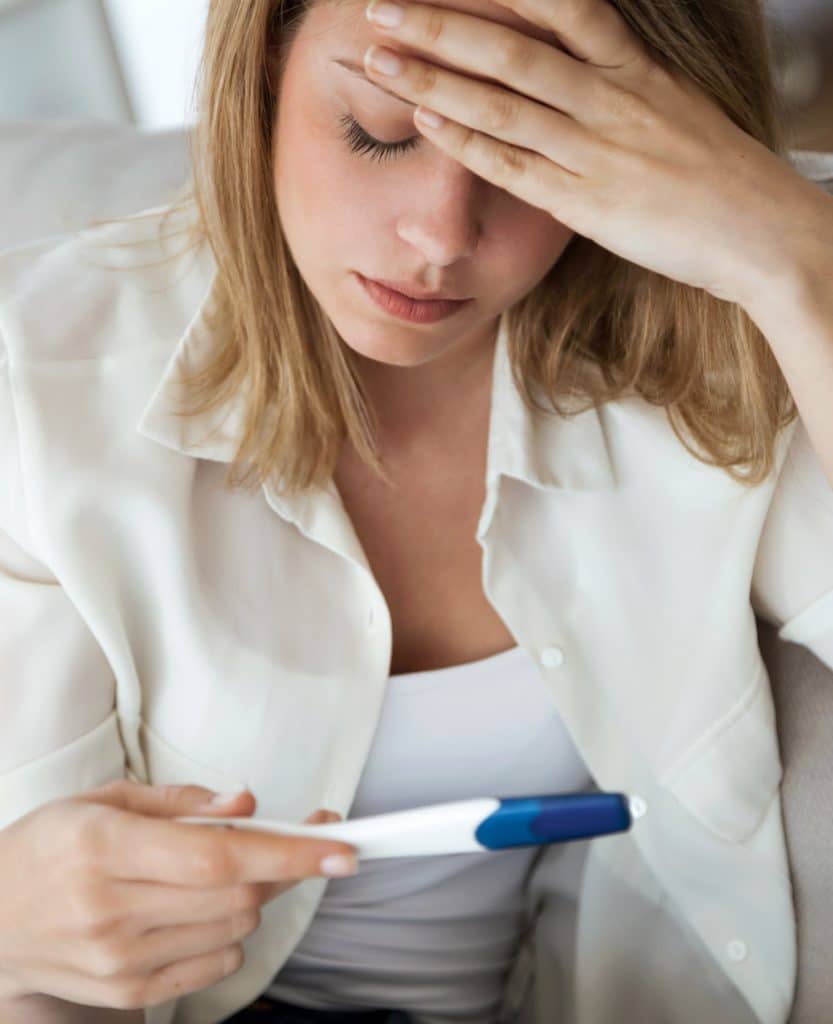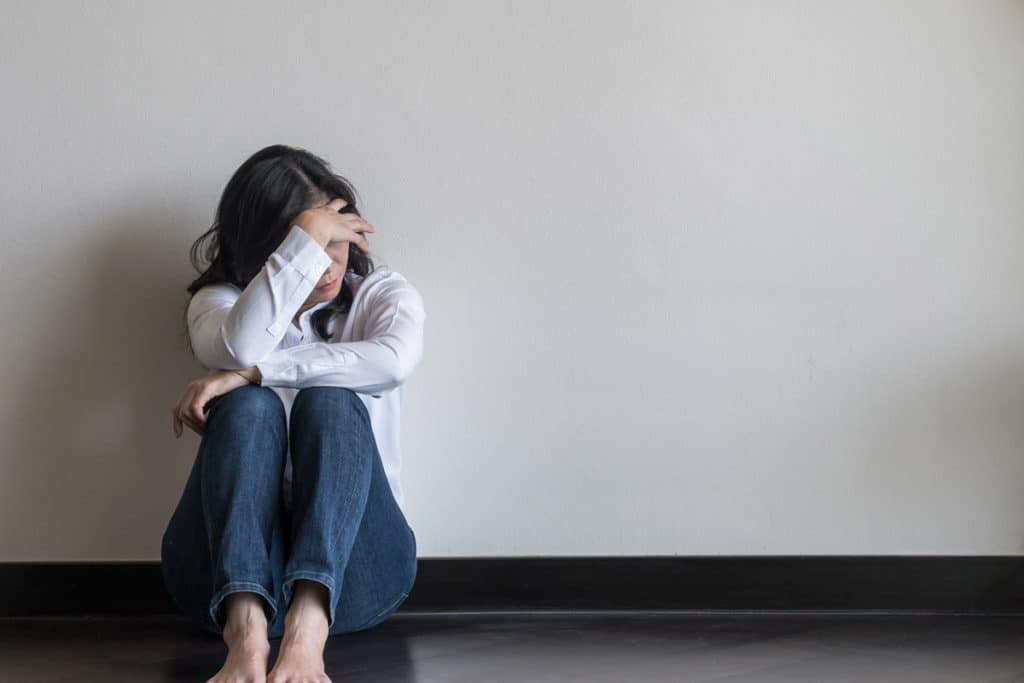A pregnant woman has many changes taking place in her body. If these changes are not properly taken care of, it could very likely lead to depression. Depression during pregnancy is not only associated with poor pregnancy outcomes. It is an illness that affects you and your baby’s health. It is important to address and treat depression and anxiety. This will ensure that they do not lead to a more severe form of mental illness. With that said, here we will look at ways that will help you to avoid depression during pregnancy.
Being pregnant can be difficult for many women. Depression and anxiety are common during pregnancy, but it’s important to know what the best ways of managing your depression is when you’re carrying a baby in your womb. There is no cure to curing postpartum depression or mood disorders that may arise from hormonal changes and sleep deprivation after childbirth, as well.
One of the biggest issues with depression during pregnancy is that it can be difficult to diagnose, because certain symptoms may be attributed to other causes, such as natural mood swings. Nevertheless, it is always wise to pay attention to your mental health.

In This Article
What is Depression?
Depression is one of the most common mental disorders that people face today. It is a serious medical illness that impacts how you feel, the way you think, and how you act. But these worrisome symptoms can have an enormous impact on every aspect of your life.
When a woman experiences sadness all the time during pregnancy, it is known as antenatal depression. If this is not treated it can even lead to postpartum depression. Here, one thing that you must understand is that depression is not your fault. Additionally, there are many steps one can take to prevent it. You can maintain your mental health both during and after pregnancy.
What Causes of Depression During Pregnancy?
There are many causes of depression during pregnancy. The reason may vary depending on the women undergoing pregnancy-related problems. There are many reasons why women develop depression during pregnancy, with hormones being a very significant factor. Let us have a look at certain factors that might be pregnancy depression causes:
- In most cases, pregnant women undergo hormonal changes that can lead to depression.
- Women with severe PMS are more likely to experience depression during pregnancy.
- You might experience depression if anybody else in your family has suffered from it. This is means genetic can be a reason behind depression and anxiety.
- Depression can be a result of chemical imbalances.
- Various situational factors can lead to depression.
- Experiencing mental abuse
- Had depression history before pregnancy
These are some common causes of depression during pregnancy; knowing them can help you treat this condition if you experience it.
What are the Symptoms of Depression During Pregnancy?
All pregnant women will have a different experience, You should pay close attention to all the signs of depression, when they occur, and how long they last. If you want to know how to examine if you are suffering from depression during pregnancy, let us help you out. Below we have shared some pregnancy depression symptoms that you must have a look at:
- Feeling sad and hopeless all the times
- Facing frequent sleep problems or unable to sleep
- Feeling excessively anxious about the baby
- Inability to derive pleasure from pleasurable activities
- Noticeable change in appetite
- Inability to concentrate on anything properly
- Losing interest in favorite activities
- Feeling worthless or guilty all the time
- Experiencing frequent mood swings or emotional instability
- Losing the desire to communicate with friends and family
- Feeling tearful too often
- Thinking about harming yourself
- Poor weight gain
Not all this, but depression during pregnancy can have an impact on a baby’s health as well. According to research, if a pregnant woman experiences depression and anxiety there might be chances of the premature birth of the baby. In other cases, it might lead to giving birth to a low birth weight baby. The stress experienced by pregnant mothers can result in developmental delays in infants.
What are the treatment options for depression?
Depression during pregnancy is a complex condition that can be hard for any expecting mother. Especially when she is worried about the well-being of her unborn child. It can have a damaging effect on both the mother and the child. Thus it is necessary to seek medical advice to treat depression and prevent long-term consequences. If you’re suffering from depression, do not worry! It is treatable with the right help. There are many pregnancy depression treatments available that are safe to opt for during pregnancy. Depression usually should be treated with medication, therapy, or a combination of both.

Talk Therapy
Talk therapy is one of the most effective options for treating depression during pregnancy. Talk therapy may include both individual and group therapy as well as the use of cognitive-behavioral therapy. Talking with a counselor and discussing your problem can help you overcome anxiety.
Acupuncture
Acupuncture for depression is becoming increasingly popular. It helps them deal with their emotional concerns. It has been shown to help relieve some symptoms of depression and anxiety during pregnancy. This can help you feel better and relieve other pregnancy symptoms like morning sickness and back discomfort.
Taking Care of Diet
Diet can play a larger role in antenatal depression than previously thought. A balanced pregnancy diet is important for the general health of the mother. Following a balanced diet will reduce the risk of pregnancy complications and may help reduce symptoms associated with depression.
Stay on top of your sleep habits
Depression during pregnancy can lead to a sleep deficit, make sure you’re getting enough rest, so be sure to establish a bedtime and stick with it as best you can.
Family Time
Spending quality time with family and friends will help you feel cheerful and happy. Having long conversations with your close ones will make you feel better, Additionally, it might help you to boost your mood. Thus, to fight against depression, take time to spend with your family members and enjoy happy moments.
Exercise
Exercise for treating depression is helpful in many cases. It has a positive effect on hormones in the body such as serotonin and dopamine. People who exercise regularly tend to suffer fewer symptoms than those who do not. Because exercise can be beneficial for general health and mood, it makes sense that it can help with depressions as well.
Medical Treatment
If making any of these changes in lifestyle does not help you to overcomes this situation, seeking a medical consultation is helpful. However, make sure you do not take any medicines without consulting the doctor. This is because any medicine can have harmful effects on your unborn baby. Thus, take prescribed medicines only.
Work out
Depression during pregnancy might make fatigue worse, but exercise has been shown to decrease depressive symptoms for some women. Exercise doesn’t have to mean taking a long run – even simple things like walking or stretching can make a difference.
Seek out support
Depression is a difficult thing for anyone to go through and it’s important not to isolate yourself from others who may have gone through similar situations. Depression during pregnancy can make it difficult to find the energy or motivation to reach out, but getting support from friends and family can be a great way of managing your condition.

Conclusion:
Depression during pregnancy is common and is a normal reaction to the conflicting feelings of carrying a baby. However, it is important to understand the symptoms and warning signs of depression during pregnancy so you can seek help. It can be a very challenging time, but you can improve your chances of getting through it by following some simple steps. Changing your lifestyle activities and following a healthy diet will help you to prevent pregnancy depression symptoms. The support of a professional therapist or psychologist can help you stay on track and feel better about your pregnancy. In case, you feel that none of these methods are helping you, do not panic. You can seek medical consultation to treat the problem. Keep in mind the more happy and cheerful you will be the healthier will be your pregnancy.











